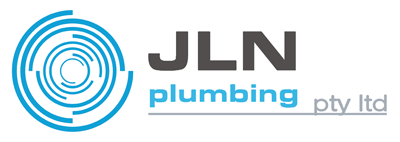In the ever-evolving world of education, where info streams generously and access to expertise is only a click away, student-driven encyclopedias are becoming a vibrant tool in the understanding process.

These platforms not just offer trainees with a database of info yet additionally motivate them to contribute, edit, and curate web content, fostering a joint and interactive learning atmosphere.
As educational paradigms change in the direction of even more participatory and comprehensive models, the idea of student-driven encyclopedias embodies this change. These systems empower trainees to end up being active participants in expertise development, bridging the void in between conventional textbook discovering and modern electronic sources.
The Idea of Student-Driven Encyclopedias
Student-driven encyclopedias are digital systems where trainees collectively gather, confirm, and distribute information on a wide variety of subjects. Unlike conventional encyclopedias, which are commonly created by professionals, these platforms take advantage of the collective efforts of pupils to develop an extensive body of expertise.

At their core, student-driven encyclopedias are created to cultivate vital reasoning, study abilities, and digital proficiency among pupils. By engaging in the process of content production, pupils learn to browse and assess details critically, abilities that are necessary in today’s information-rich society.
In addition, these systems serve as a space for pupils to discover their passions and share their know-how. This autonomous approach to expertise development ensures that a diverse variety of perspectives and voices are represented, enriching the learning experience for all participants.
- Pupils get hands-on experience in research and content production.
- Motivates collaboration and peer interaction.
- Promotes a deeper understanding of subject matter.
- Fosters inclusivity and variety in expertise representation.
Essentially, student-driven encyclopedias change pupils from easy receivers of information into active factors, instilling a sense of ownership and responsibility in their instructional trip.
Benefits of Student-Driven Encyclopedias
One of the primary benefits of student-driven encyclopedias is the advancement of important 21st-century skills. As students take part in the procedure of content creation, they develop their essential thinking, digital proficiency, and communication abilities, all of which are vital in today’s interconnected globe.
Additionally, these platforms motivate a collaborative knowing setting, where students can work together to validate info, discussion different point of views, and co-edit short articles. This peer-to-peer communication not just enhances discovering end results but also cultivates a feeling of neighborhood and shared respect amongst students.
Moreover, student-driven encyclopedias supply a system for showcasing pupil work. As trainees add to the encyclopedia, they build a profile of their research study and writing, which can be invaluable for additional academic and expert searches.
Obstacles and Limitations
Despite the numerous advantages, student-driven encyclopedias likewise encounter particular challenges. Ensuring the accuracy and dependability of info is extremely important, as these systems count on contributions from students who may not yet possess expert-level expertise.
- Maintaining content quality and precision.
- Supplying adequate guidance and assistance.
- Ensuring equitable accessibility and inclusivity.
To minimize these obstacles, numerous student-driven encyclopedias carry out a system of checks and balances, where material is examined by educators or specialists prior to publication. This makes certain that the information provided is both precise and reliable, promoting the integrity of the platform.
The Future of Student-Driven Encyclopedias
As technology continues to breakthrough and the landscape of education evolves, the possibility for student-driven encyclopedias is substantial. These systems have the ability to not just complement standard educational resources yet likewise redefine the way understanding is acquired and shared.
In the future, we could see student-driven encyclopedias incorporating more advanced modern technologies such as artificial intelligence and machine learning to boost content curation and personalization. Additionally, they may broaden beyond textual info to consist of multimedia content, using an extra immersive discovering experience.
Empowering the Future Generation
Student-driven encyclopedias hold the promise of empowering the future generation of learners. By positioning students at the helm of understanding development, these platforms encourage lifelong knowing, inquisitiveness, and intellectual independence.
Finally, as academic systems continue to introduce, student-driven encyclopedias stand as a testament to the power of partnership and the relevance of trainee company in the understanding process. By student learning support embracing these platforms, we open the doors to a more inclusive, appealing, and dynamic educational experience for all.


